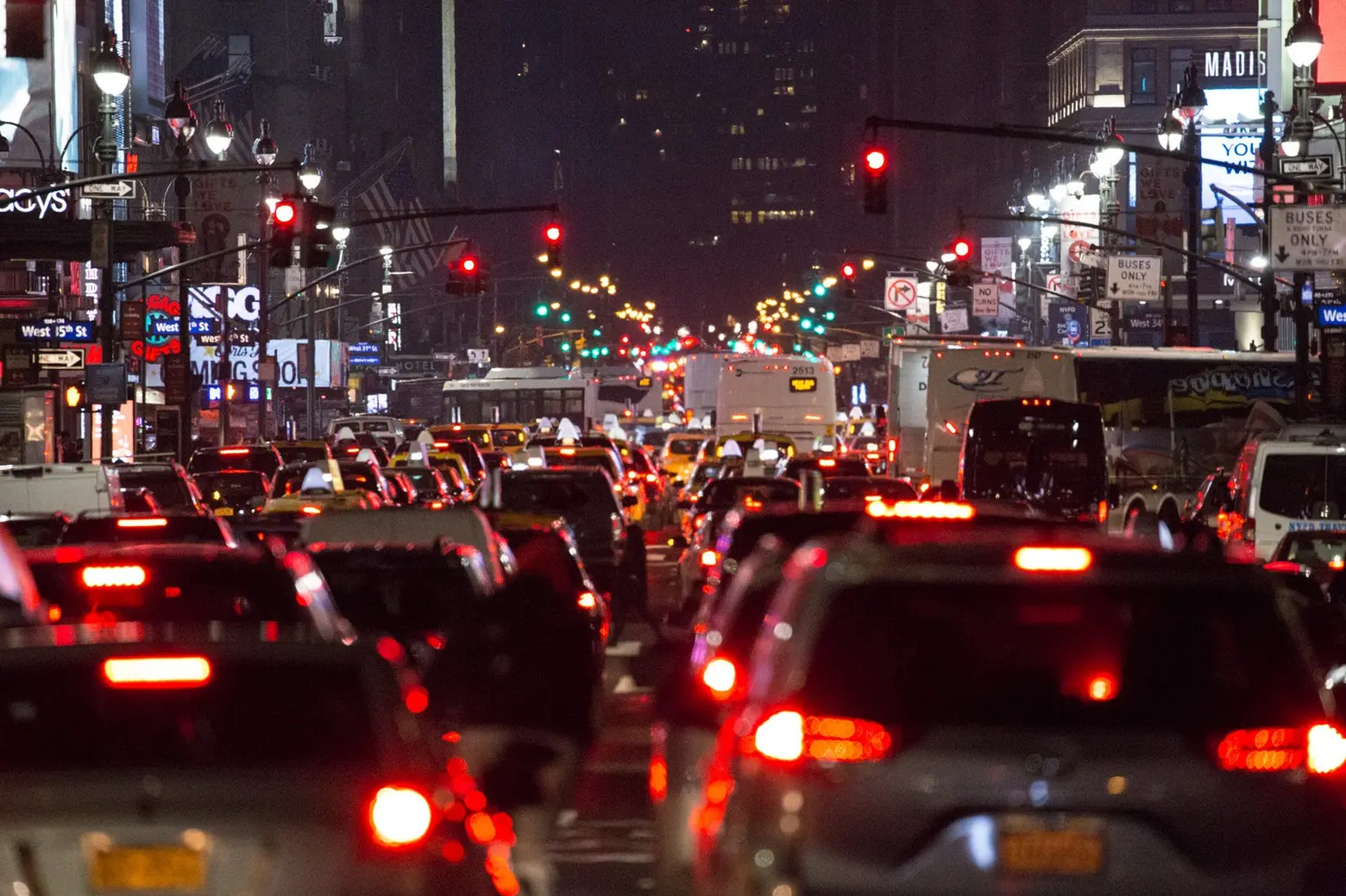A lower congestion pricing toll floated by New York lawmakers

Photo courtesy of strolicfurlan on Flickr
New York lawmakers are floating a lower congestion pricing toll as a way to convince Gov. Kathy Hochul to resume the program, which she halted “indefinitely” last month. The $15 base fee was established based on the 2019 law that required the program to raise enough to support $15 billion in debt. As first reported by the New York Times, some state senators are seeking an adjusted fee low enough for Hochul to endorse but high enough to fund the MTA adequately.
Any modification to the program would require Hochul to call a special legislative session to amend the 2019 law approving the program. This move would restart a review process that has already taken over five years. Lawmakers would also have to figure out new ways to fund the MTA to make up the difference in revenue.
Adjustments to the $15 base toll would likely need MTA board approval, a 60-day public comment period, and a review by the Federal Highway Administration to assess the effects lowering the fee would have on traffic.
“I’ve personally urged the governor to mend it, not end it,” Sen. Brad Hoylman-Sigal told The Times. “I think there could be an appetite among my colleagues to adjust the toll and other features of congestion pricing while approving additional revenue to make up the shortfall to the M.T.A., but only if the program is allowed to proceed.”
When asked on Tuesday about the possibility of lowering the fee during a press conference on free pool access at state parks, Hochul said: “I’ll be continuing to have conversations with the leaders of the legislature and members of key committees. Every project that is important will be funded, but as I said, we’re talking about this summer of affordability.”
“What we’re doing at our state parks, recognizing that families are struggling and right now, $15 on top of everybody’s expenses is just not the right time. We will find the financing and yes, conversations are very much underway.”
While he didn’t provide a new recommended price, Hoylman-Sigal said that he’d advocate for “dynamic pricing,” which would fluctuate depending on the amount of traffic in Manhattan at the time, according to Gothamist.
The senator emphasized that the main priority is getting the program launched before January in case former President Trump wins the election and delivers on his promise made in May to “TERMINATE Congestion Pricing in my FIRST WEEK back in Office!!.”
At a press conference on Tuesday, where MTA Chair and CEO Janno Lieber announced new subway improvements and extended service to the beach, Lieber was asked if he had heard about the conversations regarding potentially lowering the toll.
“I don’t know anything about those discussions, I’ve seen some of the same material that you’re referring to, but I don’t know if anything is being talked about. I’m not going to comment on stuff that I don’t really know about.”
Congestion pricing aims to reduce traffic in Manhattan’s busiest areas by charging drivers a toll when they enter the borough below 60th Street. The program was also meant to generate $1 billion in funding for the MTA to use on critical transit improvements, many of which are now delayed due to Hochul’s move to indefinitely pause the program on June 5.
The transit agency was counting on the funds generated from the program and had already allocated approximately half a billion dollars to implement the tolling infrastructure before its planned June 30 start date.
Hochul blamed the current economic situation for delaying the program, saying that “circumstances have changed” since the program was approved in 2019. However, reports say that Hochul was pushed to delay the program by Rep. Hakeem Jeffries, who is fighting to win back a Democratic majority later this year.
A coalition of legal experts and transit advocates is considering taking legal action to resume congestion pricing. NYC Comptroller Brad Lander said his team might file lawsuits based on several laws, including the 2019 statute that approved congestion pricing, the Climate Leadership and Community Protection Act, and others.
RELATED:




























